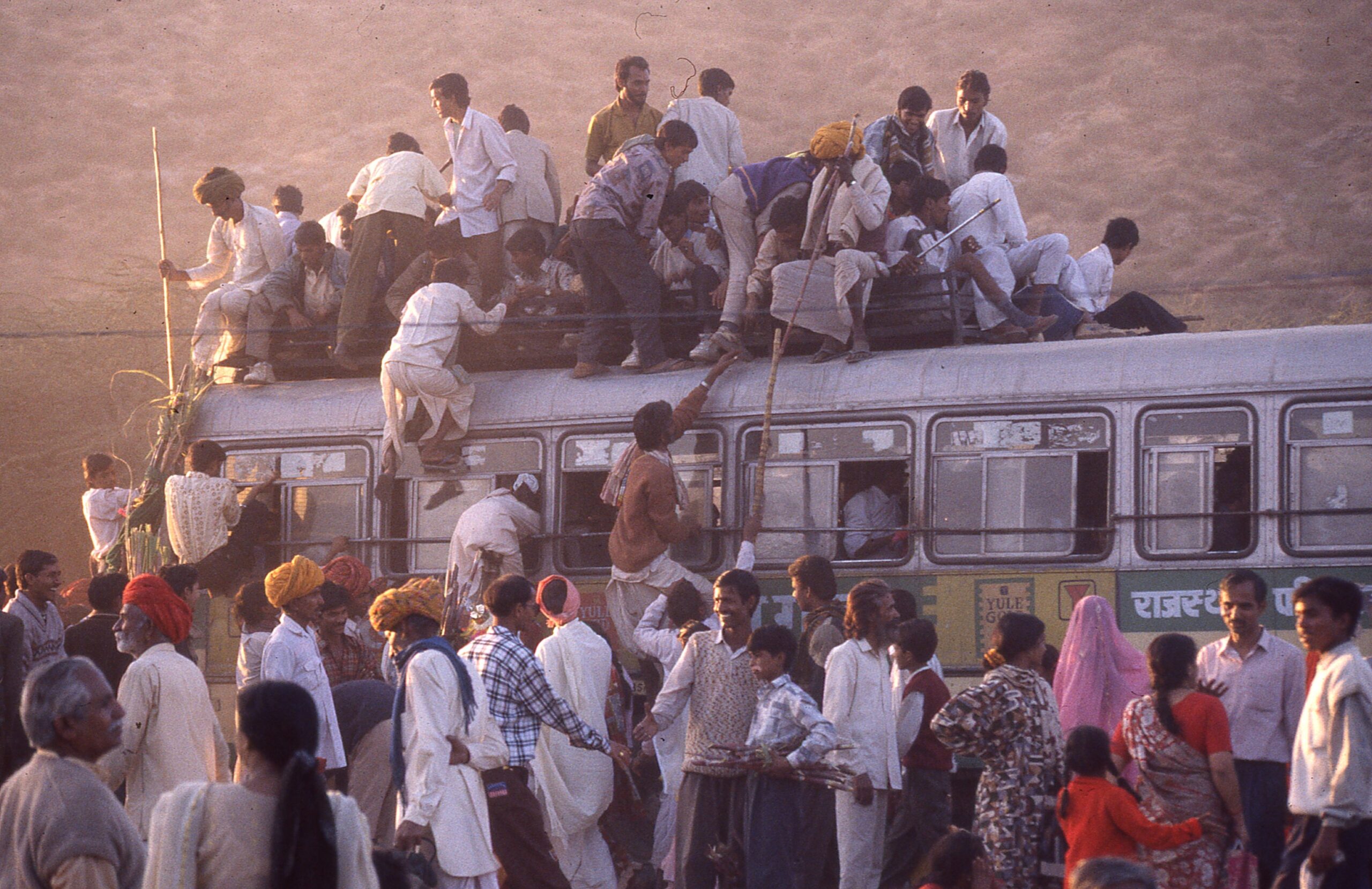Travel By Bus

Bus travel is a vital mode of transportation in India, connecting urban centers, small towns, and remote villages. Known for its affordability and extensive reach, India’s bus network is one of the largest and most diverse in the world. It is an essential part of the daily commute for millions of people and a convenient option for travelers exploring the country.
Importance of Bus Travel in India
- Connectivity: Buses provide access to areas not covered by trains or flights, mainly rural and hilly regions.
- Affordability: A cost-effective travel option for people across all economic strata.
- Convenience: High-frequency services and multiple boarding points make buses a flexible transportation choice.
Types of Bus Services
Indian bus services cater to various budgets, comfort levels, and travel distances.
Government-Operated Buses
Operated by State Road Transport Corporations (SRTC), these are often reliable and affordable.
- Examples:
- KSRTC (Karnataka)
- MSRTC (Maharashtra)
- APSRTC (Andhra Pradesh)
- TNSTC (Tamil Nadu)
Government buses typically fall into these categories:
- Ordinary Buses: Economical but essential amenities, suited for short distances.
- Semi-deluxe and deluxe buses offer slightly better seating and comfort for longer journeys.
- Luxury Buses: Air-conditioned options with plush seating, catering to middle- and high-income travelers.
Private Bus Operators
Private operators provide extensive services with a focus on comfort and convenience. Popular operators include:
- VRL Travels, SRS Travels, RedBus partners, and more.
Private buses are available in various formats:
- Non-AC and AC Buses: Suitable for different budgets and weather conditions.
- Volvo and Scania Coaches: Premium buses for intercity and long-distance routes, known for smooth rides.
- Sleeper Buses: Equipped with berths for overnight journeys.
- Luxury Buses: Wi-Fi, onboard entertainment, and clean restrooms are available in selected services.
City Buses
Urban areas often have a robust bus network:
- Low-Floor Buses: Operated in cities like Delhi, Bengaluru, and Mumbai for convenience and accessibility.
- Electric Buses: Environment-friendly buses are gaining traction in metro cities like Hyderabad and Pune.
- Mini-buses: Serve narrower lanes and less-crowded routes in towns and suburbs.
Popular Bus Routes in India
Bus routes often complement the railway network, ensuring smooth travel between cities and towns:
- Delhi to Jaipur: Frequent luxury and semi-deluxe buses connect the two cities within 5-6 hours.
- Chennai to Bengaluru: Overnight sleeper buses are a common choice for this route.
- Manali to Leh: A scenic yet adventurous route through the Himalayan mountains.
- Mumbai to Pune: A short and popular route with regular air-conditioned buses.
Benefits of Bus Travel
- Affordable: A lower-cost alternative compared to trains and flights.
- Last-mile connectivity: Reaches places inaccessible by other modes of transportation.
- Flexible Timings: The high frequency of buses ensures flexibility for travelers.
- Variety: Travelers can choose buses based on their budget and comfort requirements.
Challenges of Bus Travel in India
- Traffic Congestion: Travel time can be unpredictable, especially in cities and on busy highways.
- Comfort: Ordinary buses may lack adequate legroom and amenities.
- Overcrowding: Common in government-operated buses during peak hours and festivals.
- Road Conditions: Poor roads in certain regions can make journeys longer and less comfortable.
Tips for Bus Travel in India
- Book tickets in advance, especially during peak travel seasons or on popular routes.
- Use Online Platforms: Websites like RedBus, AbhiBus, and MakeMyTrip make it easy to book tickets, compare prices, and check reviews.
- Pack Essentials: Carry water, snacks, and a light blanket for long journeys.
- Opt for Trusted Operators: When choosing private buses, select well-reviewed operators for safety and comfort.
- Be Punctual: Arrive at the bus stop early to avoid missing your ride.
Advancements in Bus Travel
The Indian bus system is evolving to meet modern needs:
- Electric and CNG Buses: Cities like Delhi and Bengaluru are investing in greener alternatives to reduce air pollution.
- Smart Ticketing: Contactless payments and mobile ticketing apps enhance user convenience.
- Better Infrastructure: Modern bus terminals with waiting lounges, clean restrooms, and digital information boards are being developed.
- Highways and Expressways: Improved road infrastructure, like the Mumbai-Pune Expressway, ensures faster and smoother journeys.
Cultural Experience of Bus Travel
Bus travel in India offers a unique opportunity to interact with people from different walks of life, listen to regional music, and even enjoy local snack vendors during stops. For tourists, it is a budget-friendly way to experience India’s diversity up close.
Conclusion
Bus travel in India remains indispensable for its extensive reach and affordability. Despite challenges, continued investments in technology, infrastructure, and comfort make it an increasingly preferred mode of travel for millions. Whether for a short urban commute or an intercity journey, buses offer an accessible and versatile way to explore the vibrant landscapes of India.

